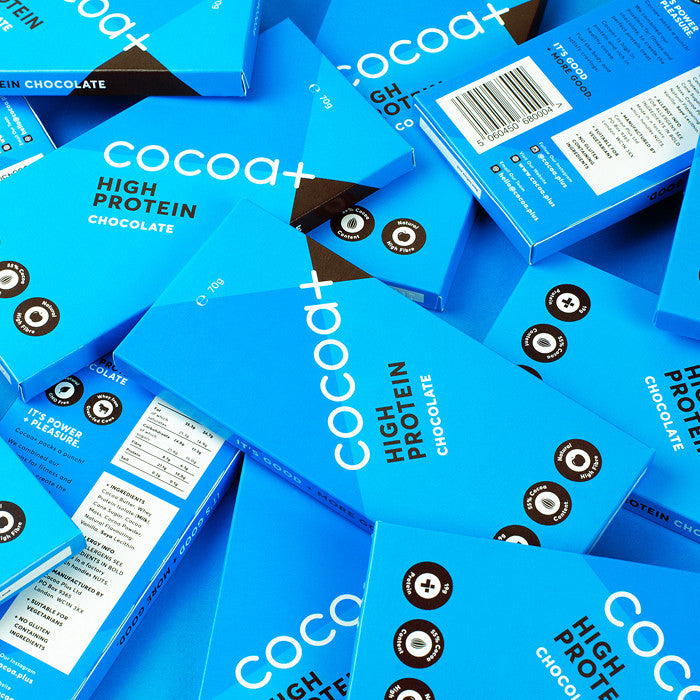
Chocolate That’s ‘Whey’ Better
Share
You may be asking, what’s all this fuss about whey protein? Where does it come from? Why has Cocoa+ put whey protein in a chocolate bar? Well don’t panic: We have the answers…
“Cocoa+ prides itself on using time-honoured traditions…”
Whey protein is actually completely natural and derived from cow’s milk. Used for centuries, it is highly functional and has been valued for its many exciting health benefits. It is rich in naturally occurring amino acids—the body’s building blocks—and has many more uses including:
- Curbing hunger,
- Aiding weight loss,
- Increasing Brain function,
- Improving Sleep,
- Lowering Blood Pressure,
- Reducing risks of cardiovascular disease,
- Supporting a healthy immune system.
Our ‘Whey’ Forward
We were surprised to find out that most modern whey is host to a plethora of genetically modified organisms, pesticides, hormones and steroids! This may help to save companies money during the production process, but it’s at the expense of diminishing all the wonderful health benefits.
Cocoa+ prides itself on using time-honoured traditions by producing our whey from grass-fed cows. We vow never to use additives or add anything that wasn’t there in the first place. We won’t compromise your health for a quick buck. We hope you love our Protein Chocolate!
References
- Lindseth, G., et al. Nutritional Effects on Sleep. W J Nurs Res. 2011 Aug
- Markus CR, Olivier B, de Haan EH.Whey protein rich in alpha-lactalbumin increases the ratio of plasma tryptophan to the sum of the other large neutral amino acids and improves cognitive performance in stress-vulnerable subjects. Am J Clin Nutr. 2002 Jun;75(6):1051-6
- Marshall, Keri. (2004). Whey Protein Review. Alternative Medicine. Volume 9, No.2
- Ha E, Zemel MB. Functional properties of whey, whey components, and essential amino acids: mechanisms underlying health benefits for active people (review). J Nutr Biochem. 2003;14(5):251-8.
- Baer DJ, Stote KS, Paul DR, Harris GK, Rumpler WV, Clevidence BA. Whey protein but not soy protein supplementation alters body weight and composition in free-living overweight and obese adults. J Nutr.2011; 141(8): 1489-94.
- American Chemical Society. (2014, May 3). “The beneficial effects of whey on diabetes and cardiovascular disease risk factors in obese adults.” Medical News Today.
- Retrieved from: http://www.medicalnewstoday.com/releases/276217.php
